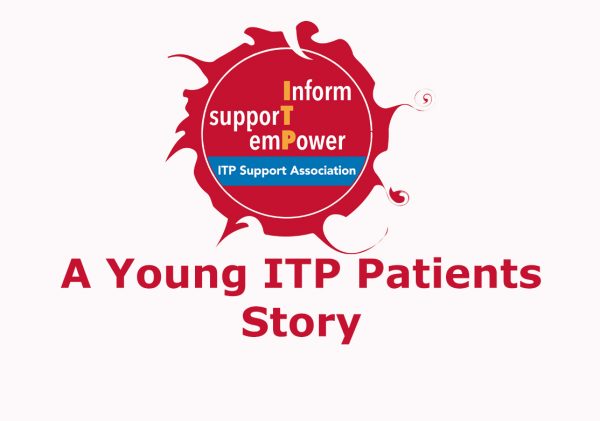No products in the cart.

Liam Burns’ ITP Journey
-
by
lucys
Liam Burns’ ITP Journey
Liam was diagnosed with ITP 27 years ago at the age of 50 after falling unwell. Numerous tests were done and he was referred to the Haematology Department at the Mater Hospital, Belfast where he was under the care of Professor Mary Frances McMullan. A diagnosis of leukaemia was considered until a lumbar puncture was performed, which confirmed a diagnosis of ITP.
Treatment at this time was platelet transfusions initially, however, Liam’s body destroyed these platelets and therefore IGGs (Immunoglobulins) were given intravenously. These IGGs increased Liam’s platelet count and his normal platelet count sat normally around 80.
Liam was a tiler by trade and had to give up this line of work. He was at high risk of bleeding and bruising. He got another job working in the Mater Hospital, Belfast as a domestic and then a driver delivering bloods to surgeries around Belfast.
As a consequence of having ITP, which is an autoimmune disorder, Liam’s body then went to destroy itself further due to being immunosuppressed. He went on to develop Diabetes Type 2, Crohn’s Disease, Pulmonary Fibrosis, Diverticular Disease, Haemolytic Anaemia (Evan’s Syndrome) and was more prone to infection.
Due to congenital issues, he was discovered to have aortic stenosis, which required open heart surgery to insert a tissue valve as a mechanical valve was too high risk with having a low platelet count. This also meant that in the future he would have had to have open heart surgery again, as the tissue valves do not last as long as the mechanical valves.
Liam also developed bladder stones and then gallstones, both of which caused sepsis and required procedures. What would have been a night or two in hospital, turned into a few weeks in hospital, due to low platelets. Liam had to receive transfusions, IGGs and immunosuppressant drugs such as Hydrocortisone/Prednisolone.
In October 2014, Liam’s bloods were all abnormal, this included his platelet count and white blood cell count – all of which pointed to a diagnosis of lymphoma; however, further tests were performed including biopsies which ruled out lymphoma and diagnosed Crohn’s Disease.
Liam was commenced on some drugs to control his Crohn’s Disease a few years ago, which caused a platelet drop. This was the time he was diagnosed with Haemolytic Anaemia, as both his platelet count and haemoglobin levels were dangerously below normal. He was then commenced on steroid medication, (Prednisolone) which over time, increased both his platelet and haemoglobin count.
Since December 2019, Liam’s bloods began to worsen. No one could find a cause for this, and it was just assumed that his ITP condition had worsened. In April 2020, Liam was admitted to ICU due to a small cut in his stomach, where he had internal bleeding. This was due to a very low platelet count of just 1. He was administered high dose Hydrocortisone amongst many other medications. With the help and support of Dr Benson and the Haematology Team in the Haemophilia Centre in Belfast, Liam pulled through and spent the rest of the year at home with his family, still receiving Prednisolone and two new drugs, Romiplostim (N-Plate) and Mycophenolate. The clinic in the Haemophilia Centre became like a second home to our family. In late January this year (2021), Liam’s platelet count was steadily decreasing and on 15th February, he contracted sepsis and was admitted to hospital once again. This time, he had developed gallstones and cholecystitis. Liam did not show as having an infection previous to this as he was on immunosuppressants and this means that sometimes the patient does not always present with a temperature. During his seven weeks in hospital, Liam received platelet and haemoglobin transfusions daily. Sadly, on April 2nd 2021, he passed away. Having ITP meant Liam was not always a candidate for surgery or other interventions as he was at high risk of a bleed, even with having received platelets.
As a family, our life was not like other families we know. Liam’s children spent their whole lives growing up where hospital appointments, blood transfusions, medication and taking extra precautions due to the risk of bleeding became the daily norm. Life for Liam and for us as a family was like a rollercoaster. Liam attended weekly appointments at the Haemophilia Centre, Belfast to have his bloods monitored and treatment adjusted as required. The fear we all felt as a family every week was the worst imaginable feeling ever. We were always aware that if Liam had new bruises, blood blisters/ulcers in his mouth, a petechial rash – had his platelet count dropped dramatically and was the medication no longer working? We could never travel far as Liam’s platelet count could drop at any time and he had to be near a hospital. We found it very difficult to explain what ITP is and how it affects people. It is such a rare condition that most healthcare professionals that Liam came into contact with are highly unlikely to come into contact with another patient with ITP in their career. Many medics and nursing staff in the many wards in different hospitals that Liam was a patient in, did not understand ITP or how to deal with it, for example, extra care would have to be taken when manoeuvring or handling patients suffering from ITP, which many members of staff were unaware of and uneducated in.
The Haemophilia Centre did everything to give Liam the best quality of life for as long as possible. The past few years had been extremely challenging for Liam but no matter how much pain and suffering he was dealing with he never complained and lived for every day. He is our hero and is an example to us all on how to live life to the fullest. In his darkest days he was still the one caring for others, visiting friends and relatives who were sick and always making everyone laugh with his jokes, even in times when we did not think laughing was possible. Only us, as a family, realised the implications and consequences of ITP and what Liam had to go through every day. He was so brave and did not want to trouble anyone even when he knew all his diagnoses were stacking up against him and the odds were getting shorter. We miss him immensely and our family life will never be the same.
We hope Liam’s story can make a difference to other ITP patients and their families and help promote awareness of this terrible disorder.



